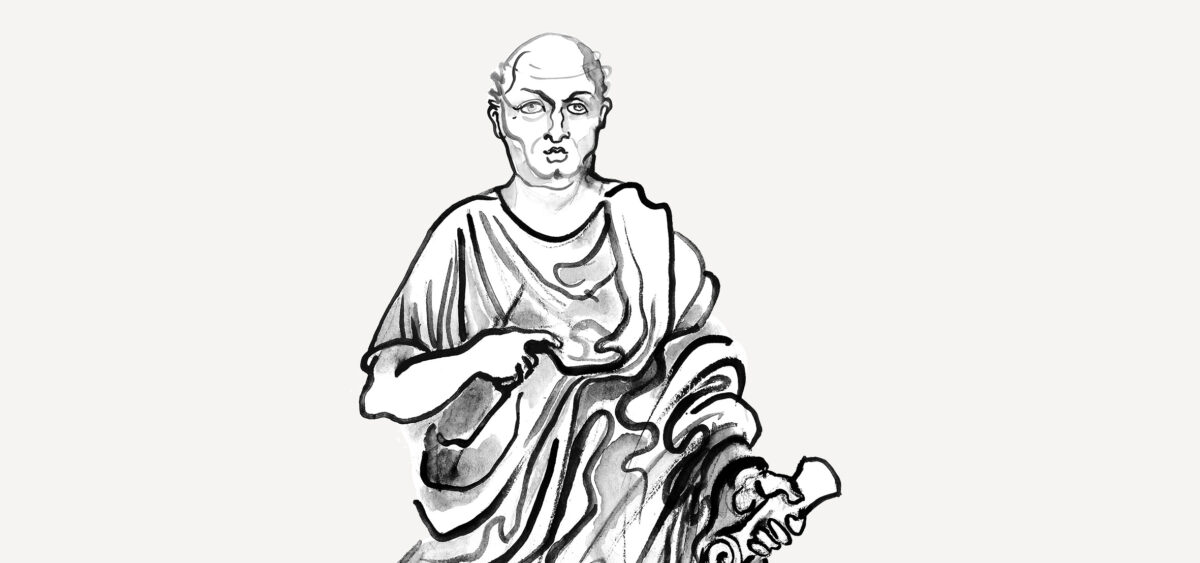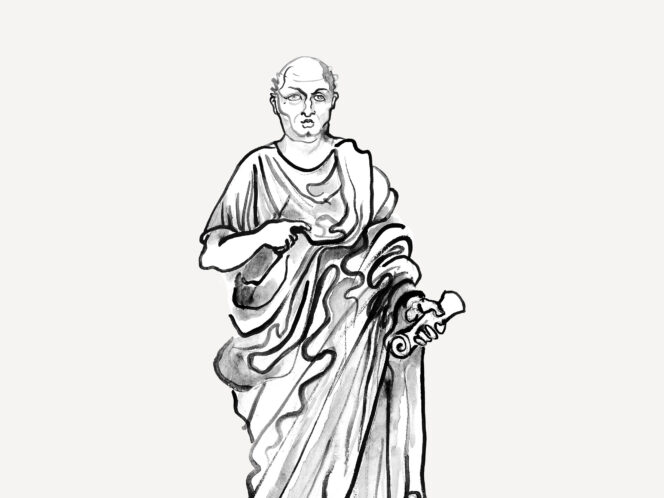
A “Przekrój” exclusive! An extraordinary posthumous interview with Seneca, about what we can learn from children and how not to get lost in the contemporary world – all thanks to our staff philosopher.
Piotr Stankiewicz: What’s the best way to introduce Your Excellency? Lucius Annaeus Seneca – the most famous Roman oligarch?
Seneca: That word is kind of modern, ‘oligarch’ – isn’t just ‘philosopher’ better?
Maybe ‘millionaire philosopher’? Or, counting two millennia worth of interest, perhaps ‘billionaire’?
I don’t know if I like this kind of identity. These, after all, are external things.
Well, you amassed some assets, accepted a few legacies…
Were they supposed to go to waste? The soul of a person wastes away if you don’t exercise it, but capital is also wasted if it gets bored. Weren’t we not supposed to talk about this?
We were supposed to talk about stoicism. For at least 2000 years people have been fascinated by how what Your Excellency wrote about life relates to how Your Excellency lived.
Has any author’s legacy ever freed them from this accusation? If the guide is supposed to show the road, can he follow it himself? By the way, in this 21st century of yours, do you always start with criticism?
OK, so we’ll move to praise. I’ll take up the subject I left off on with Marcus Aurelius in winter. We were talking about death.
The classics are just a barrel of laughs.
There’s an argument in Your Excellency’s Dialogues that stuck in my mind many years ago, and I’ve never had the opportunity to thank you. It was about how we can look at death as a transition to another stage of life. And in this sense, it’s nothing out of the ordinary. An infant ceases to be an infant and becomes a child. Then the child ceases to be a child and becomes a young adult; later we also discard young adulthood, entering into middle age, and so on. These steps aren’t clearly defined, of course. Each of them is a process, and each of them is somehow a death in miniature.








